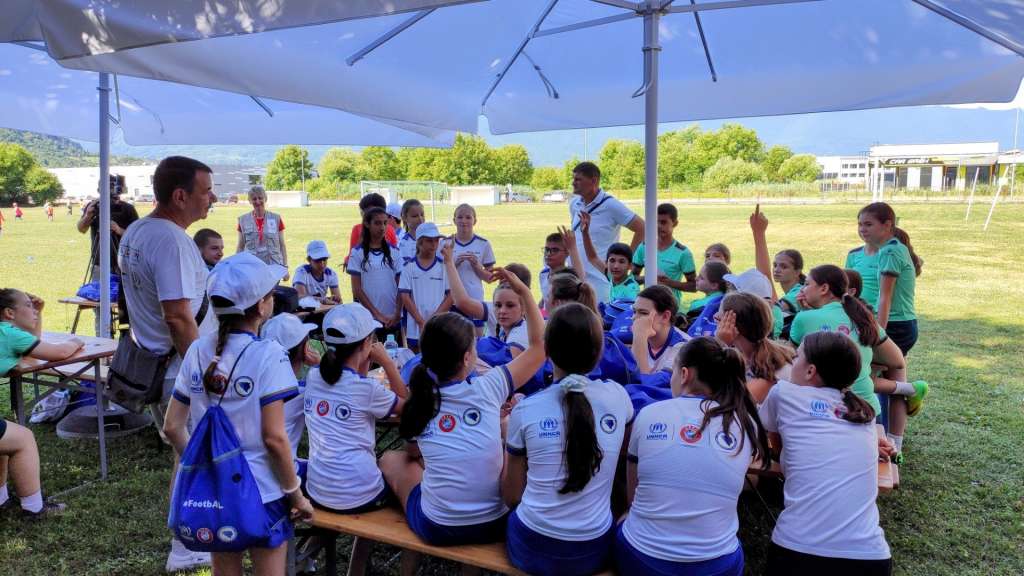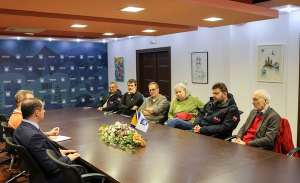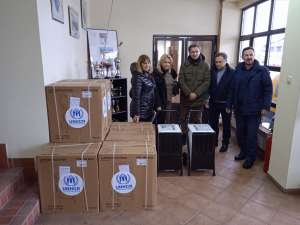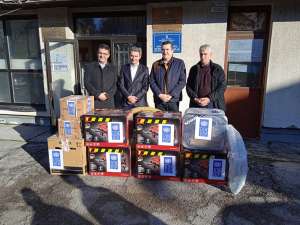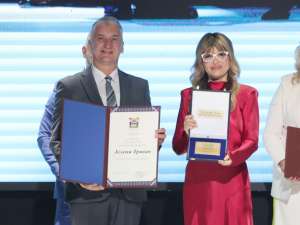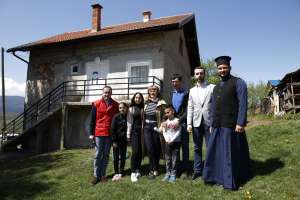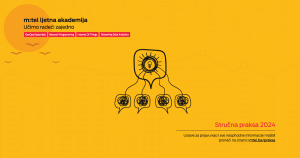SARAJEVO, July 16 (FENA) - For the first time in Bihać, with the support of UEFA, boys and girls from families of refugees, asylum seekers and migrant families, as well as from local football clubs and marginalized groups, their teachers and parents, studied this weekend the Foodball3 method of playing football without referees.
The event was organized by the United Nations Refugee Agency (UNHCR) and the Football Association of Bosnia and Herzegovina (NSBiH) as part of the Social Integration through Football project "Football3 as a Method for Social Change".
It was an opportunity for boys and girls to participate in two-day workshops, and there were also trainings for coaches of children's football clubs and physical education teachers from primary and secondary schools, training for parents of children, guardians and other people who work with children, as well as workshops and sports activities with 80 children from local football clubs and marginalized groups (refugee children and children from migrant families residing in the City of Bihać and PPC Borići, Day Center for Children at Risk, children from the Roma community, etc.)
"The basis of this project was to include in some way marginalized categories such as children from refugee and migrant families, but also children from more socially vulnerable categories, together with other children from football clubs from these areas," said a representative of the Football Association of BiH Alija Porča.
The Head of the UNHCR office in Bihać, Vahidin Ogrešević, emphasized that "Foodball3 is a fair play football methodology used by more than 70 organizations on all continents, which teaches children tolerance and acceptance of diversity.
Through this method, players meet, form teams, agree on rules and play football. Dialogue and fair play are an integral part of the game. Football3 can be played by anyone, anywhere and can be used to address any social issue. There are no referees. Instead, mediators facilitate conversations between the two teams and monitor the match.
"These are all our children, regardless of whether we are talking about children who are originally from the city of Bihać or about children who somehow came to the city of Bihać due to circumstances. They are all our children. Through projects such as this one, the message is sent that we want to support all children, and not only in sports activities but also for them to socialize and make new friends," said the mayor of Bihać, Elvedin Sedić.
Football3, named after its ‘three halves’ – a pre-match discussion, football game, and post-match discussion, incorporates key life lessons into every match. Ideally played in mixed-gender teams, players collectively decide on the rules before the game. Following the match, they reflect on their behavior and the behavior of their opponents, with points awarded for goals as well as for fair play.
To understand the origin of football3, you must first go back to the 1994 FIFA World Cup in the United States. Columbia, considered underdogs for the tournament, were knocked out in the group stage after an own goal from their center-back, Andrés Escobar. A few weeks after the return of the Colombian team, Escobar was shot dead in a parking lot by a fanatic fan for scoring the fatal own goal.
The tragedy shook the world of football and especially Colombia which, at that time, was in the midst of a war that would last over 60 years. Escobar’s tragic death inspired a movement called futbol por la paz which claimed that football was a sport that was meant to unite people, not to kill them. Futbol por la paz was a direct response to Escobar’s murder and the war; it brought together guerrilla fighters, paramilitary groups, and gangs to play football. This laid the foundation for football3 – enemies in war coming together to play football.
Over the past 30 years, football3 has evolved. Today, football3 is a fair play football methodology that is used by over 70 organizations from the Common Goal Community on all continents. Across the globe, players meet, form teams, agree on rules and play football. In football3, dialogue and fair play are integral to the game.
(FENA) S. R.

